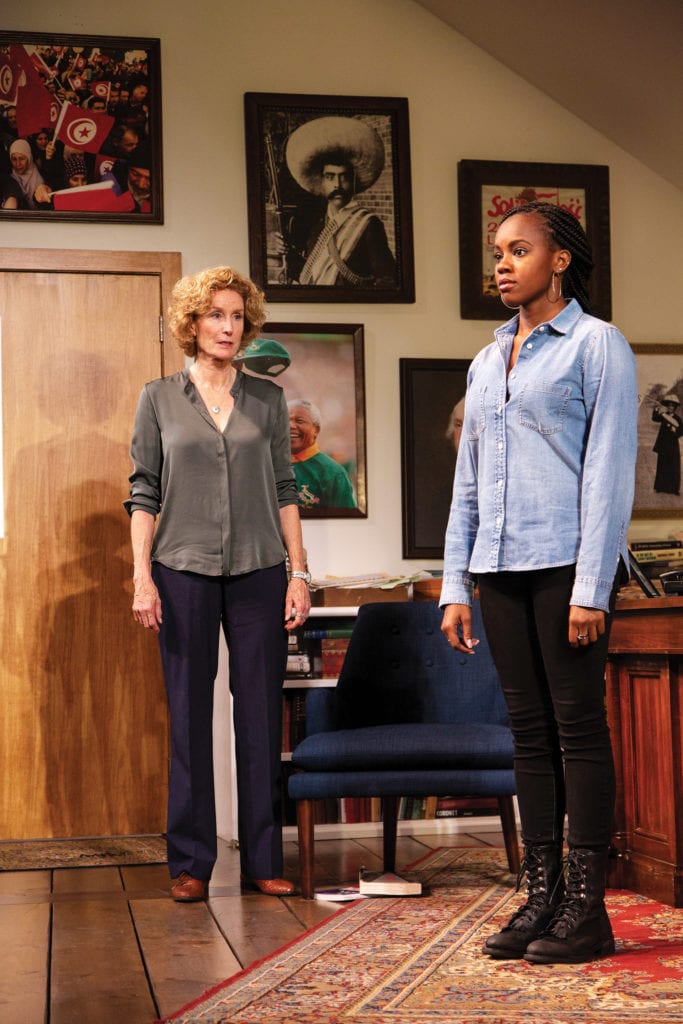Let’s talk about race
‘The Niceties’ brings an important conversation to the forefront

“The Niceties,” showing at Huntington Theatre Company through Oct. 6, does what America has so much trouble doing: it holds a frank conversation about race. In the play, a black student named Zoe and her white teacher Janine discuss slavery in the American Revolution. The conversation doesn’t go well. But it provides an important opportunity for audience members to look at and hear themselves.
Eleanor Burgess wrote the play after a racially charged controversy at her alma mater, Yale College. She found that though everyone was theoretically on the same page, they quickly became divided. “People who would all say that America has a problem with racism and we have to fight it, realized that meant very different things among them,” she says.

Student and teacher discuss race and the nature of oppression in Eleanor Burgess’ play “The Niceties” at Huntington Theatre Company. Photo: T. Charles Erickson
Burgess has made the conversation highly realistic, particularly by making it clear there is no one right answer. Both Zoe and Janine make valid points and wild missteps, and each is unable to see the other’s point of view. Perhaps Janine’s biggest misstep is believing she can relate to Zoe’s frustration because of the treatment she’s received as a woman, an immigrant and a lesbian. “It’s a fallacy that a lot of people want to believe that oppressed people have something in common,” says Burgess, “when actually specific forms of oppression have very different results that push you in different directions.” This is just one of the lessons the show articulates.
What “The Niceties” does is bring a conversation to Boston that many people are afraid to have. Jordan Boatman, who plays Zoe, says of the play’s characters, “They’re having a conversation that a lot of us would like to be having, but they’re saying things we feel like we can’t say because of politeness and political correctness.”
The second half of the play ends about where we are now — full of questions. One of the biggest questions is, once we’ve established that there’s a problem, what can we do to fix it? It’s a particularly timely query as midterm elections draw near.
Burgess wrote and set the play in the spring of 2016, so it takes on an even more forceful personality in the wake of the 2016 election. She hopes that being able to observe the discussion rather than participate in it will allow audiences to consider another perspective. She says, “You can hear what they’re saying and actually think about why they’re having so much trouble hearing each other. And hopefully we can bring that into the conversations we’re having in the world.”







